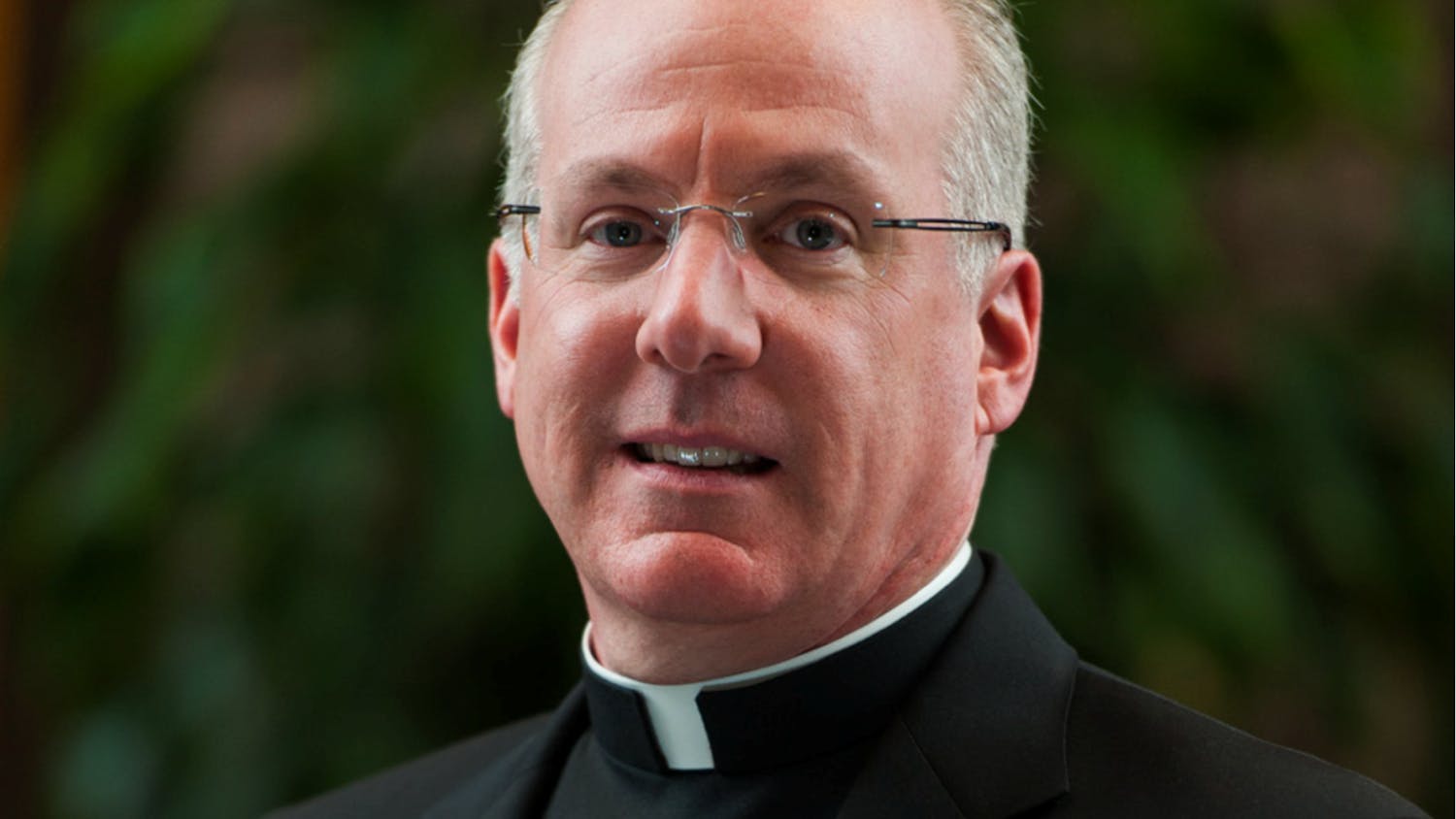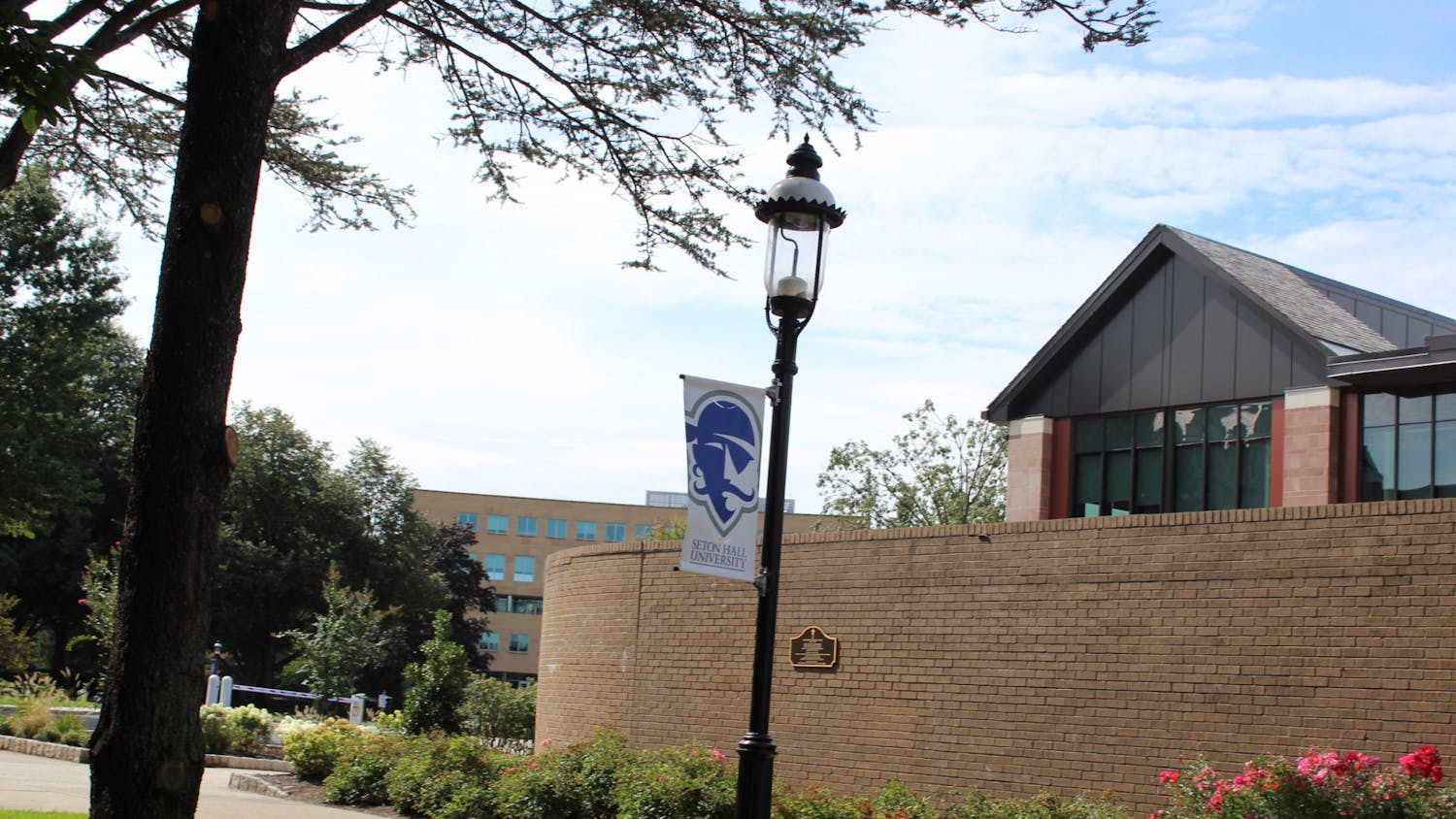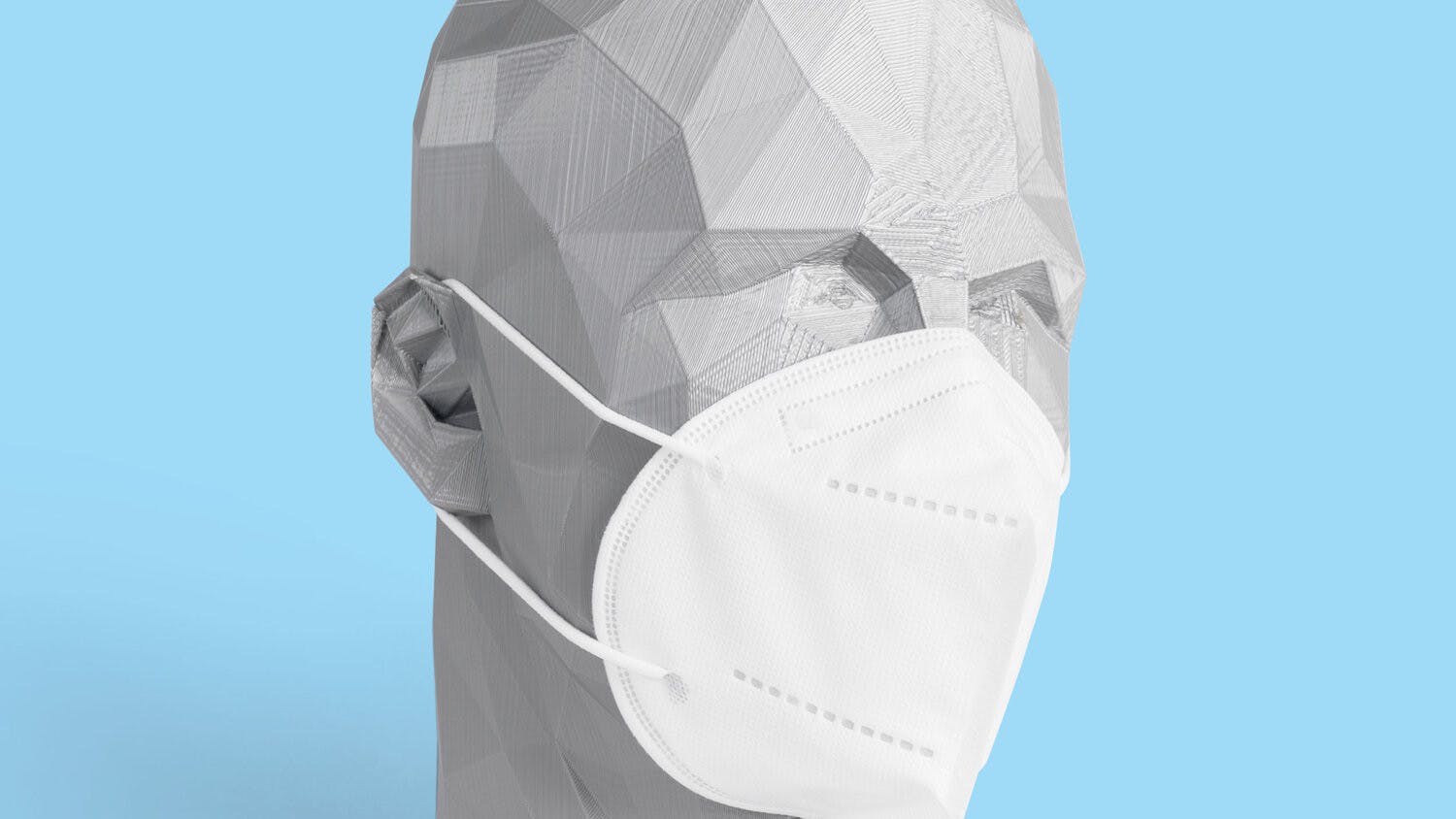The Association of Theological Schools (ATS) gave 102 grants totaling $3.4 million for this year.
Seton Hall received one of the 58 innovation grants totaling $50,000. These monetary funds are meant to break new ground and create new media to “develop Spanish-language resources, course syllabi, discussion questions, a bibliography, videos of lectures and basic course materials for facilitators for intellectual formation for permanent deacon formation,” according to the School of Theology’s website.
[caption id="attachment_19741" align="aligncenter" width="900"] School of Theology to create Spanish language curriculum. Greg Medina/Photography Editor.[/caption]
Seton Hall’s Immaculate Conception Seminary School of Theology is in the beginning steps of its collaboration with Saint Meinrad Seminary and School of Theology in Indiana to develop a Spanish-language curriculum for those studying to become a part of the permanent diaconate. The permanent diaconate is made up of ordained Catholic men, single or married, with no intention of becoming priests.
“There is an increasing need for permanent deacons to serve this segment of our Catholic faithful not only locally, but across the country as well. Many dioceses have limited academic resources to provide adequate Spanish language academic formation,” said Dean of Theology, Rev. Msgr. Joseph Reilly.
Reilly said that he is excited to have an opportunity to collaborate with St. Meinrad Seminary and School of Theology as the Spanish language diaconate project is an important initiative for Immaculate Conception Seminary School of Theology. It is part of ATS’s Educational Models and Practices in Theological Education Project, which reviews key challenges and opportunities facing member theological schools in the United States and Canada.
“The project will be under the direction and guidance of Deacon Andrew Saunders, Director of the Center for Diaconal Formation at Immaculate Conception Seminary School of Theology in collaboration with members of St. Meinrad responsible for program development and implementation of their permanent diaconate programs,” said Monsignor Reilly.
Deacon Andrew Saunders’s primary focus on this project is supplying basic needs for these future candidates, such as developing a resource of books, encouraging Spanish textbook publishers and beginning a local search for credentialed instructors. In creating this curriculum, the main goal is to make it as low tech as possible.
The university hopes to create CD’s or even use thumbnails to upload content to for candidates to learn from. In eliminating technology, the University is ensuring that all candidates will be able to use the content without problem of internet services being inadequate according to Saunders.
As part of the University’s mission to uplift students, Saunders wants to carry this mission to these candidates and uplift them in their studies. Seton Hall wants to provide aid by becoming a building block to encourage the acquirement of additional education and aid candidates to move up the educational ladder.
Since 2011, the School of Theology has educated seven cohorts with a total of 132 students. It has become a center for diaconate formation, which specializes in education.
According to Reilly, Seton Hall is the right place to take the creation of a Spanish language curriculum because there are multiple faculty members who speak Spanish within the church.
“We are fortunate to have Seminary faculty and priests within the Archdiocese of Newark who are bilingual and have the necessary credentials to provide Spanish language formation to our permanent diaconate candidates,” Reilly said. “Our intention is to make this innovative program available to bishops and dioceses across the country.”
Reilly, Saunders and other members from both schools “expect development work to begin in the spring of 2018 with the goal of completing a large portion of the project by September 2018,” Reilly said.
Vanessa Vela can be reached at vanessa.vela@student.shu.edu
School of Theology to create Spanish language curriculum. Greg Medina/Photography Editor.[/caption]
Seton Hall’s Immaculate Conception Seminary School of Theology is in the beginning steps of its collaboration with Saint Meinrad Seminary and School of Theology in Indiana to develop a Spanish-language curriculum for those studying to become a part of the permanent diaconate. The permanent diaconate is made up of ordained Catholic men, single or married, with no intention of becoming priests.
“There is an increasing need for permanent deacons to serve this segment of our Catholic faithful not only locally, but across the country as well. Many dioceses have limited academic resources to provide adequate Spanish language academic formation,” said Dean of Theology, Rev. Msgr. Joseph Reilly.
Reilly said that he is excited to have an opportunity to collaborate with St. Meinrad Seminary and School of Theology as the Spanish language diaconate project is an important initiative for Immaculate Conception Seminary School of Theology. It is part of ATS’s Educational Models and Practices in Theological Education Project, which reviews key challenges and opportunities facing member theological schools in the United States and Canada.
“The project will be under the direction and guidance of Deacon Andrew Saunders, Director of the Center for Diaconal Formation at Immaculate Conception Seminary School of Theology in collaboration with members of St. Meinrad responsible for program development and implementation of their permanent diaconate programs,” said Monsignor Reilly.
Deacon Andrew Saunders’s primary focus on this project is supplying basic needs for these future candidates, such as developing a resource of books, encouraging Spanish textbook publishers and beginning a local search for credentialed instructors. In creating this curriculum, the main goal is to make it as low tech as possible.
The university hopes to create CD’s or even use thumbnails to upload content to for candidates to learn from. In eliminating technology, the University is ensuring that all candidates will be able to use the content without problem of internet services being inadequate according to Saunders.
As part of the University’s mission to uplift students, Saunders wants to carry this mission to these candidates and uplift them in their studies. Seton Hall wants to provide aid by becoming a building block to encourage the acquirement of additional education and aid candidates to move up the educational ladder.
Since 2011, the School of Theology has educated seven cohorts with a total of 132 students. It has become a center for diaconate formation, which specializes in education.
According to Reilly, Seton Hall is the right place to take the creation of a Spanish language curriculum because there are multiple faculty members who speak Spanish within the church.
“We are fortunate to have Seminary faculty and priests within the Archdiocese of Newark who are bilingual and have the necessary credentials to provide Spanish language formation to our permanent diaconate candidates,” Reilly said. “Our intention is to make this innovative program available to bishops and dioceses across the country.”
Reilly, Saunders and other members from both schools “expect development work to begin in the spring of 2018 with the goal of completing a large portion of the project by September 2018,” Reilly said.
Vanessa Vela can be reached at vanessa.vela@student.shu.edu





